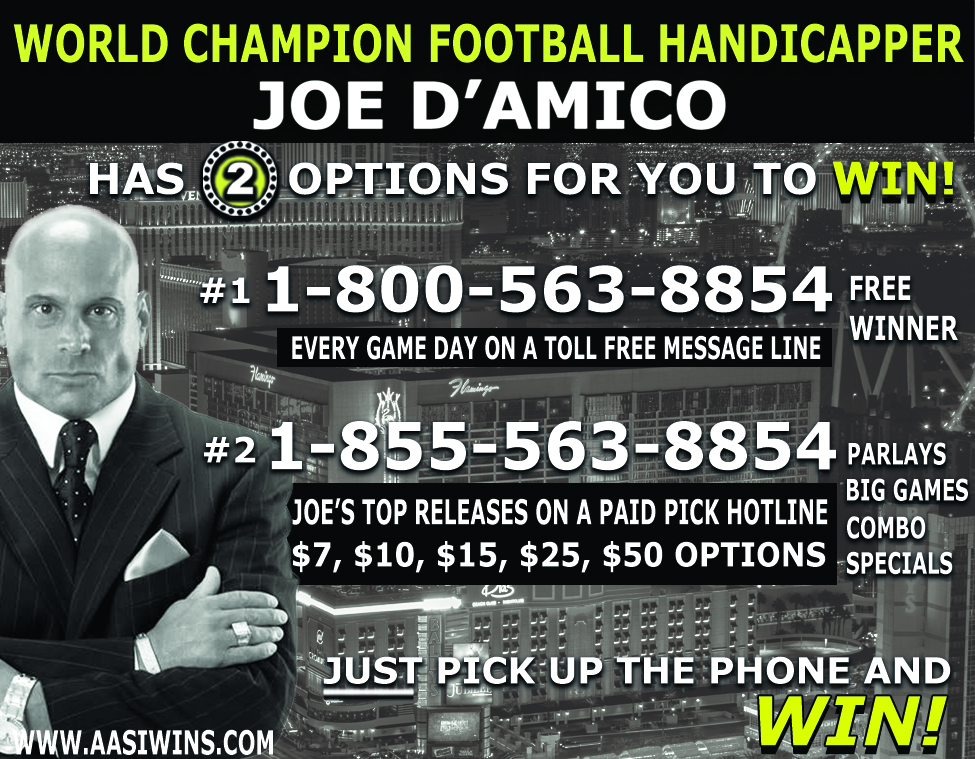
NFL COVER STORY…A CHARMING ROGUE by Bruce Marshall of the Gold Sheet

It took Rozelle a moment to make sure he gave an appropriate and, as usual, well-measured response. “I think Al can best be described,” said Rozelle carefully, “as a charming rogue.”
Over all of years, and all of the descriptions (both good and bad) we have heard about Davis, we think the one above probably best sums up the maverick owner, who passed away at his Oakland home last Saturday at 82.
Rozelle, of course, made that long-ago comment through clenched teeth, for at the time he and Davis were involved in a high-stakes legal battle involving the Raiders and their proposed move to Los Angeles, which drove a permanent wedge between the two, as well as between Davis and most of the NFL hierarchy. And, as we begin to review Davis’ life and career in retrospect, we believe that to be the defining battle of Davis’ colorful career, one that cast him as a larger-than-life, David-like character fighting the NFL Goliath.
 Of course, reducing the Davis legacy to one storyline hardly does him justice, and we cannot hope to touch upon his influence and contributions to pro football in this limited space. Regarding his overall impact on the game and industry, however, we’ll just say Davis is on a very short list, probably alongside George Halas, Paul Brown, and Rozelle, and perhaps even above Vince Lombardi, as the most influential and important characters in the history of the pro football.
Of course, reducing the Davis legacy to one storyline hardly does him justice, and we cannot hope to touch upon his influence and contributions to pro football in this limited space. Regarding his overall impact on the game and industry, however, we’ll just say Davis is on a very short list, probably alongside George Halas, Paul Brown, and Rozelle, and perhaps even above Vince Lombardi, as the most influential and important characters in the history of the pro football.
As the tributes begin to roll in, a number of Davis anecdotes are being recalled, although one we always liked best was a little game Davis supposedly liked to play with dinner companions or new acquaintances. Davis would often gauge others by asking them which was more important between love, power, glory, achievement and money. And when it came Al’s turn to answer his own question, power was always his first and only answer.
Which is why we always thought it was a good thing that Davis happened to be reared in Brooklyn and became obsessed with football at a young age. Had Al been born elsewhere in the world (say the Middle East) and held the same fascination with politics and/or the military as he did with the gridiron, imagine what the consequences could have been? At least most of the upheavals caused by Davis occurred in the rather narrow world of pro football.
 What concerns us is that some of the early tributes and commentaries after Davis’ passing risk trivializing his legacy. Blame ESPN for immediately taking the politically-correct course and reducing some brief mentions of Davis’ passing to his hiring of the first Latino (Tom Flores) and African-American (Art Shell) head coaches in the NFL, while other media outlets chose to focus on his recent attempt to rebuild the Raiders into a powerhouse once more.
What concerns us is that some of the early tributes and commentaries after Davis’ passing risk trivializing his legacy. Blame ESPN for immediately taking the politically-correct course and reducing some brief mentions of Davis’ passing to his hiring of the first Latino (Tom Flores) and African-American (Art Shell) head coaches in the NFL, while other media outlets chose to focus on his recent attempt to rebuild the Raiders into a powerhouse once more.
This is akin to reducing mention of Dwight Eisenhower’s passing to his farewell address when warning of the dangers of the military-industrial complex. Reducing distinguished careers to such sound bites, however important, don’t do the subjects justice. Davis never considered himself an agent for social change; Flores and Shell were Raiders first and last in Davis’ mind, and the best men for the job at the time. Period. That Davis, like other trailblazers in sport such as Don Haskins or George Ireland, was enlightened enough not to care about color or appearance was just a byproduct of his persona. Davis would have hired a sea tortoise to coach the Raiders if he thought that would help them win (some argue that’s exactly what Davis did when bringing Shell back for a second tour of duty in 2006; but we digress).
No, Davis was about far more. Innovation. High-flying offense way ahead of its time, where the pass would set up the run. Controversy. Winning with hands-on ownership. Battling and winning vs. the NFL in court. Embracing maverick status. Helping forge the pro football merger in his short stint as AFL Commissioner. Various reclamation projects. Just win, baby!
 Davis was not without his flaws. He was once described by Howard Cosell as a loner who needed a jungle with no rules. He could be a great ally or a loathsome enemy; Davis’ list of aggrieved is just as long and distinguished as his supporters. His rise to power in the Raider organization, upon his hiring from Sid Gillman’s old Charger staff as coach in 1963, was not without controversy, eventually muscling out original Managing Partner Wayne Valley in the process. It has long been speculated, though never proven, that Davis had various unsavory contacts. Even if true, it would only enhance the intimidating image Davis loved to cultivate and embrace.
Davis was not without his flaws. He was once described by Howard Cosell as a loner who needed a jungle with no rules. He could be a great ally or a loathsome enemy; Davis’ list of aggrieved is just as long and distinguished as his supporters. His rise to power in the Raider organization, upon his hiring from Sid Gillman’s old Charger staff as coach in 1963, was not without controversy, eventually muscling out original Managing Partner Wayne Valley in the process. It has long been speculated, though never proven, that Davis had various unsavory contacts. Even if true, it would only enhance the intimidating image Davis loved to cultivate and embrace.
Interestingly, Davis never actually owned more than 47% of the Raiders, although he ruled the organization like King Farouk.
Davis moved lightly in his early years between football jobs before finding his niche in the newly-created AFL, where he became a valued assistant to Gillman with the Chargers. He relished the chance to sell college stars like Lance Alworth and Ernie Ladd on the virtues of the new league. He also had the vision to turn Olympic long jumper Bo Roberson into a feared deep-threat receiver, the first of many such daring personnel gambles by Davis. When hired as Raider coach in 1963, he forged one of the great turnarounds in football history, as Oakland improved from 1-13 to 10-4 in a blink of an eye; with future coach Flores at QB, the Raiders became a swashbuckling, entertaining outfit.
 Then the AFL decided it needed someone with more bite than original commish Joe Foss to get the NFL to cry “Uncle!” and force a merger in 1966. It decided upon Davis, who immediately bloodied the NFL with a raid on its QBs before Rozelle (left) and the NFL brass called a truce. The AFL-NFL merger ensued.
Then the AFL decided it needed someone with more bite than original commish Joe Foss to get the NFL to cry “Uncle!” and force a merger in 1966. It decided upon Davis, who immediately bloodied the NFL with a raid on its QBs before Rozelle (left) and the NFL brass called a truce. The AFL-NFL merger ensued.
Returning to Oakland, Davis forged more chapters as ruler of a Raider dynasty from the front office, his brilliance underscored by acquiring QB Daryle Lamonica (traded for Flores) from the Bills in 1967. Hand-picked successor Jon Rauch led the Raiders to the AFL title that year before John Madden was hired in 1969 to preside over a glorious decade in the ’70s. Madden won one Super Bowl, and successor Flores a pair after his hiring in 1979.
Everyone knew, however, the Raiders were Davis’ team. Which, ironically, might have been the seed of the franchise’s regression in the last decade after it moved back to Oakland, wherein nobody had the nerve to tell Al he was making mistakes. Again, however, it’s just a brief chapter in the compelling life story of the ultimate football maverick.
For better perspective on Davis than the modern media is going to provide, we suggest reading the 1986 book penned by none other than the aforementioned Howard Cosell, I Never Played The Game, in which Davis, and the long-ago feud with Rozelle, are detailed expertly in a couple of riveting chapters too expansive to accurately summarize in this space.
 But Cosell did manage to briefly and accurately sum up the Davis-Rozelle feud. “He’d (Davis) fight Rozelle in the alleys and on the streets. Put the pressure on. Take him inside. Use the head, the shoulders, the elbows, the arms. Lean on him. Muscle him. Crowd him. Wear him down.
But Cosell did manage to briefly and accurately sum up the Davis-Rozelle feud. “He’d (Davis) fight Rozelle in the alleys and on the streets. Put the pressure on. Take him inside. Use the head, the shoulders, the elbows, the arms. Lean on him. Muscle him. Crowd him. Wear him down.
It’s Roberto Duran vs. Sugar Ray Leonard. With a twist. Davis never heard of the words ‘no mas’.”
For us, we had a different sort of appreciation for Davis, even beyond his contributions to the game. We thought it spoke volumes about Davis, and his distance from many disconcerned NFL owners, that he actively supported enhanced benefits for disabled ex-players.
What really endeared us to Davis, however, was seeing him on a Southwest Airlines flight from LAX to Oakland about six years ago, wearing his traditional Raider garb (a silver and black jump suit), sitting near the front of the plane, and offering greetings and handshakes to fellow flyers as they entered the aircraft.
Could you imagine seeing other NFL owners such as Dan Snyder, Jeffrey Lurie, Bob Kraft, or Jerry Jones flying Southwest? And mingling with the clientele?
A charming rogue indeed.






